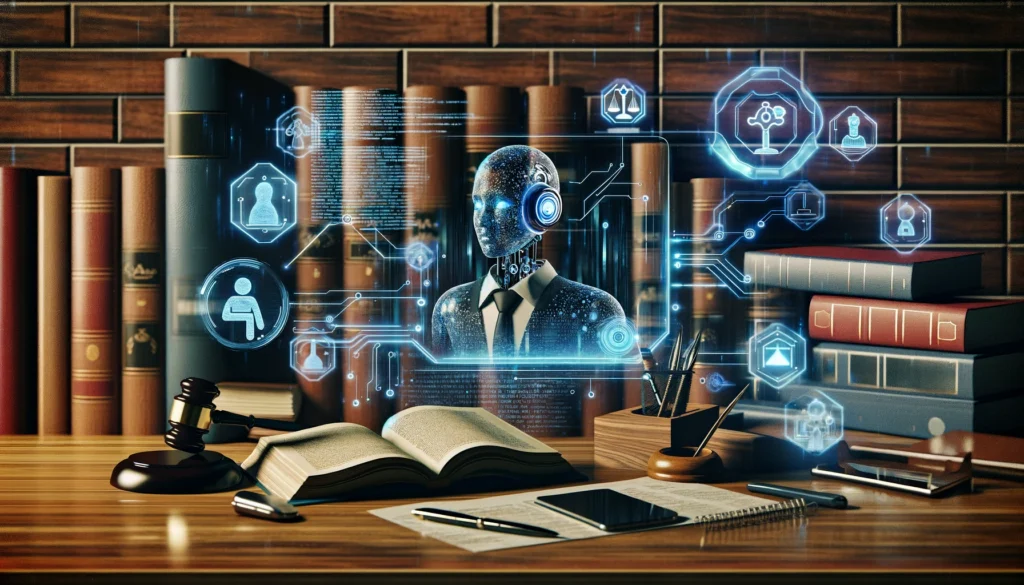
Harnessing the Power of AI in Estate Planning
Artificial Intelligence (AI) has evolved significantly, with tools like ChatGPT and large language models (LLMs) at the forefront. ChatGPT, developed by OpenAI, uses advanced natural language processing (NLP) to comprehend and generate human-like text. In the legal domain, particularly estate planning, these advancements hold the potential to revolutionize traditional practices.
The intricate and detail-oriented nature of estate planning makes it a prime candidate for AI integration. By leveraging AI, legal professionals can enhance efficiency, precision, and overall productivity, alleviating some of the burdens associated with drafting, reviewing, and managing estate planning documents.
Revamping Document Drafting: A Paralegal’s Guide
Estate planning involves meticulous document drafting, including wills, trusts, and power of attorney records. Ensuring accuracy and legal compliance amidst complex requirements can be challenging. Here’s how ChatGPT can assist:
### Assisting in Document Drafting
ChatGPT can simplify the drafting process by generating initial drafts of various documents. It can also incorporate specific legal terminology and clauses as per state laws and individual requirements.
### Practical Examples
– **Wills:** To draft a will, use prompts like:
– “Draft a simple will for a client with two heirs and one charitable donation in California.”
– **Trusts:** To create a trust, the prompt could be:
– “Generate a living trust agreement for a married couple with two children and a primary residence in Texas.”
– **Power of Attorney:** For power of attorney documents:
– “Draft a durable power of attorney for healthcare, detailing specific instructions on medical decisions, for a client in New York.”
ChatGPT can quickly provide comprehensive drafts that paralegals can then review and tailor as needed.
Also read:
Ensuring Accuracy and Compliance with AI
In estate planning, precision and legal compliance are paramount. AI tools like ChatGPT can further aid in ensuring all documents adhere to the requisite legal standards.
### Techniques for Accuracy and Compliance
– **Compliance Checking:** Use ChatGPT for initial compliance checks:
– “Analyze this trust document for any missing standard compliance elements specific to Colorado.”
– **Cross-checking Clauses:** Ensure clauses are accurately integrated:
– “Review this will’s clauses to ensure compliance with Illinois state laws regarding property distribution.”
– **Updating Documents:** Keep documents up-to-date with evolving laws:
– “Update this power of attorney to reflect the recent changes in Arizona’s healthcare directives.”
Such prompts enable comprehensive analysis and verification, thereby mitigating potential legal oversights.
Also read:
Elevating Client Communication and Engagement
Effective communication is crucial in estate planning to build trust and ensure client comprehension. ChatGPT can enhance client communication through clear, concise, and client-friendly correspondence.
### Utilizing AI for Client Interaction
– **Draft Clear Explanations:** Make complex terms easier to understand:
– “Explain what a ‘revocable living trust’ is in layman’s terms.”
– **Create FAQs & Email Templates:** Develop resources to address common queries:
– “Draft an FAQ section for a website on the basics of estate planning.”
– **Client Updates:** Generate informative and empathetic emails:
– “Compose an email updating a client on the status of their estate planning documents.”
Such tools ensure clients remain informed and engaged throughout the process.
Also read:
Optimizing Research and Legal References
Legal research is an integral part of estate planning, often requiring extensive time and effort. ChatGPT can expedite this process by swiftly locating relevant statutes and case laws.
### Techniques for Effective Research using ChatGPT
– **Finding Statutes and Case Laws:** Prompting specific legal searches:
– “Find recent case laws pertaining to irrevocable trusts in California.”
– **Summarizing Findings:** Create concise summaries of legal documents:
– “Summarize the key points of the 2021 estate tax changes enacted in Florida.”
– **Compiling Reports:** Assemble comprehensive research summaries:
– “Compile a report on the implications of the new estate tax laws for high-net-worth individuals.”
These capabilities streamline research efforts, making the process more efficient and less time-consuming.
Also read:
Streamlined Workflows and Time Management
Efficiency is key in legal practice. Integrating ChatGPT into daily workflows can significantly enhance productivity and time management.
### Strategies for Integration
– **Routine Tasks:** Automate mundane tasks with precise prompts:
– “Schedule weekly meetings and compile a to-do list for estate planning tasks.”
– **Task Management:** Manage and prioritize tasks effectively:
– “Generate a prioritized list of tasks for creating and reviewing five new estate planning cases.”
– **Time-saving Techniques:** Use AI for reminders and follow-ups:
– “Set reminders to follow up with clients regarding document review and signing by next Tuesday.”
These strategies can help streamline workflows and free up valuable time for more complex legal tasks.
Also read:
Ethical Considerations and Professional Discretion
While AI offers numerous advantages, it’s imperative to consider ethical implications and maintain professional discretion.
### Ensuring Ethical Integrity
– **Confidentiality:** Ensure all AI interactions safeguard client data:
– “What are the best practices for maintaining client confidentiality when using AI tools like ChatGPT?”
– **Professional Responsibility:** Adhere to ethical guidelines and bar regulations:
– “Use ChatGPT to draft a confidentiality agreement ensuring AI compliance with professional standards.”
– **Guidelines and Prompts:** Create appropriate safeguards:
– “Draft guidelines for paralegals on the ethical use of AI in estate planning.”
Maintaining ethical integrity while using AI tools is crucial to uphold client trust and legal standards.
Also read:
Future Trends: AI and Estate Planning
AI technology continues to evolve, promising further advancements in the legal field, specifically in estate planning documentation.
### Emerging Trends
– **Enhanced NLP Capabilities:** Future iterations of AI can offer even more nuanced and precise legal document drafts.
– **AI Integration:** Seamless integration with legal software for comprehensive estate planning solutions.
These trends suggest a promising future where AI significantly enhances the efficiency and accuracy of estate planning.
Also read:
Concluding Thoughts: Embracing AI for Enhanced Productivity
To summarize, AI tools like ChatGPT can revolutionize the estate planning process by enhancing document drafting, ensuring compliance, improving client communication, optimizing research, and streamlining workflows. Embracing these tools facilitates productivity and allows legal professionals to focus on more complex, value-added tasks.
Paralegals and lawyers should consider integrating AI to complement their expertise and provide efficient, high-quality estate planning services while maintaining the balance between technological assistance and human judgment.


